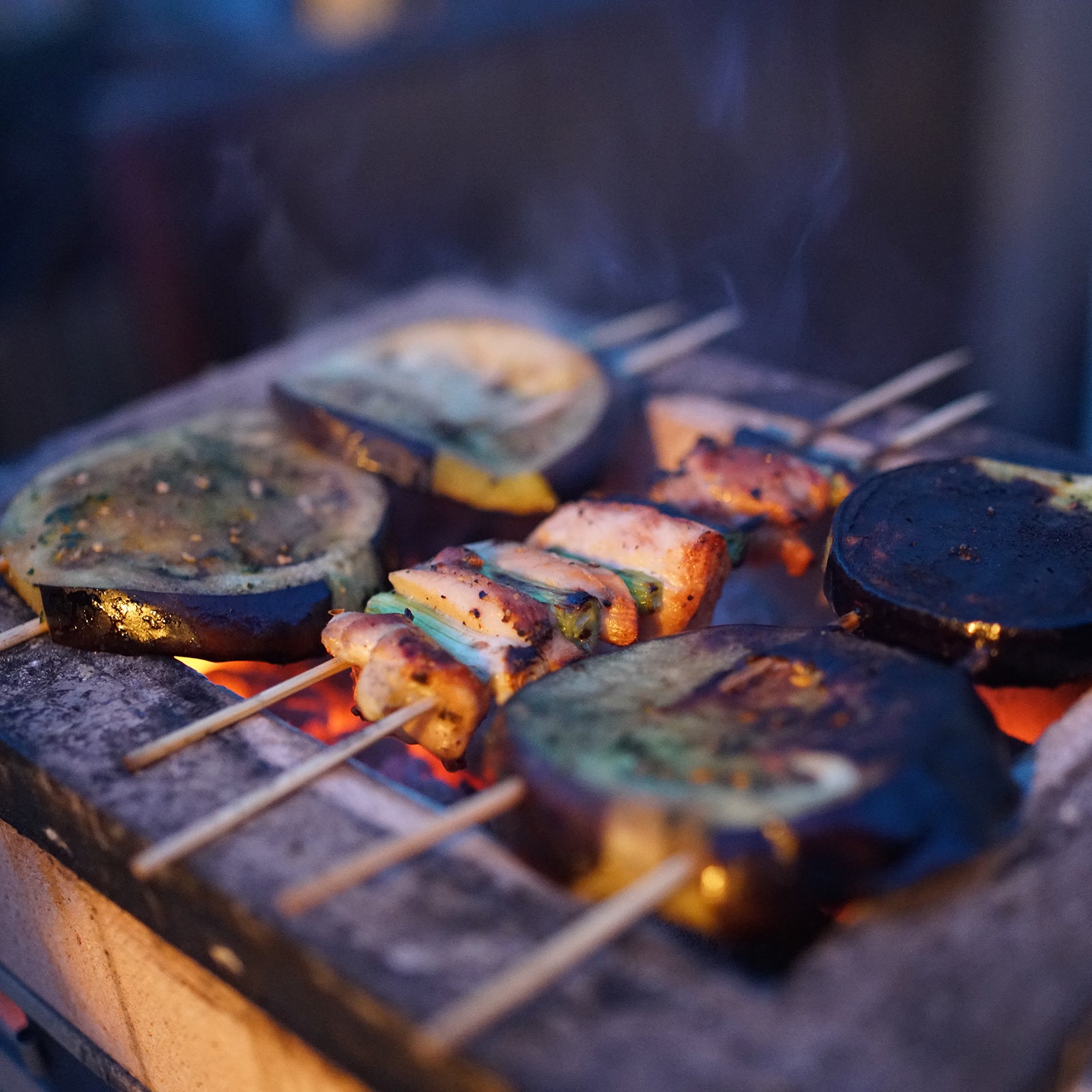There is an unfortunate line of thinking, in what I will unscientifically dub the ÔÇťAmerican camping consciousness,ÔÇŁ that backpacking should be an ascetic experience.
Car camping? Buddy, load up the ice-cold beers, cram your whole queen mattress into the rig, and bring an adult-size bouncy house. But backpacking? A quick scan of your local gear shop will tell you that surviving days outside with only what you can carry on your back requires ruthless streamlining. You must not only use ultralight gear, every superfluous gram of foam eliminated, but also eat nothing but tasteless, dehydrated astronaut food. I am here to tell you that this is nonsense! 
Over the course of the 14 or so years I have spent backpacking in Northern California, I have packed in such indulgences as a bunch of steaks, a Ziploc bag full of shrimp skewers marinating in lemon juice and garlic, several beers, a small cast-iron grill plate to cook up the said steaks, a copy of the 928-page novel 1Q84, a French press, half a dozen eggs, and a family-size bag of tortilla chips. And guess what? My legs are still attached to my body.
I have also endured my share of sad ramen noodles and assorted freeze-dried ÔÇťdinners,ÔÇŁ and I have found that compromising what you can do or cook at your destination in the name of meager weight savings on the trail is not worth it. If youÔÇÖre going backpacking for fun, and youÔÇÖre already going to hike in a small garage┬áworth of junk with you, why not reward yourself instead of performing outdoors penance?
Now, there is absolutely a time and place to consider every ounce that you put on your back. If youÔÇÖre embarking on any sort of longish trek, it is not necessarily the best idea to burn weight and space on an overly hefty sleeping pad or a brick of cheese. A pal who did the Pacific Crest Trail had to straight-up drink olive oil to get calories, since it was the densest food he could fit in his pack. The theories advanced here pertain to weekend trips, and while I have never gone on an unsupported trek longer than three nights, I imagine that a couple pounds of fresh vegetables would be a hindrance on such an expedition.
However, even in the case of a three-night trip, there might still be room to pack for one luxurious dinner. Yes, the hike out to your campsite will be marginally more difficult on day one, but┬áif you plan correctly, you will earn the reward of a truly delicious meal in a place that seems beyond the reach of such opulence. Also, most foods that seem unsuited for extended time outside of a cooler will still probably be good on the first night. Food tastes better when youÔÇÖre out in the woods, a fact that is doubly true when youÔÇÖve backpacked all your stuff in.
ThereÔÇÖs a case to be made that appreciating the outdoors properly requires suffering, that the most authentic way to be at one with the mountains is to feel small by avoiding worldly pleasures. This line of thinking not only trades heavily in the Thoreauvian┬áidea that nature is a pristine, untouched land of purity entirely apart from humans, it belies the blunt truth that you are really not going to get out into the wilderness without, say, driving a car or using a hyperlight┬ácamping stove. And thatÔÇÖs fine! You are allowed to enjoy yourself. Pack in a satchel of chicken cordon bleu, strap an oversize┬ápillow on top of your backpack, make space for a hilariously oversize┬ámancala board. Let yourself indulge, and youÔÇÖll love backpacking even more.


